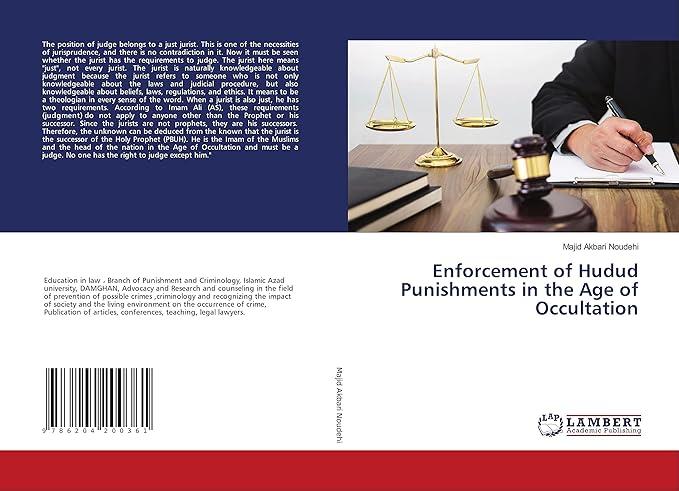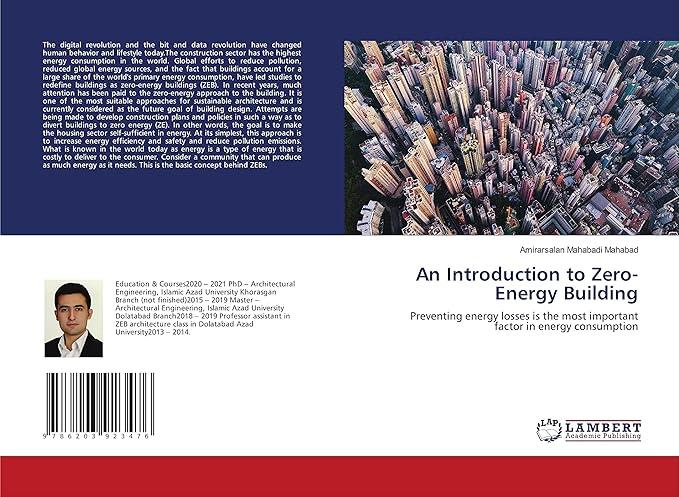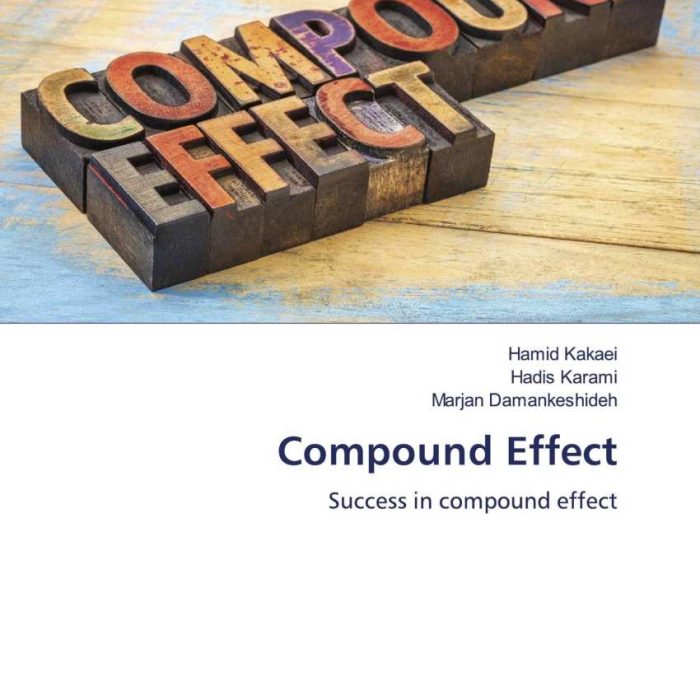کتاب Enforcement of Hudud Punishments in the Age of Occultation
۲۶۶,۰۰۰ تومان Original price was: ۲۶۶,۰۰۰ تومان.۱۹۲,۵۸۴ تومانCurrent price is: ۱۹۲,۵۸۴ تومان.
| تعداد صفحات | 110 |
|---|---|
| شابک | 978-620-4-20036-1 |
| انتشارات |

کتاب Enforcement of Hudud Punishments in the Age of Occultation – نگاهی پژوهشی به اجرای حدود در عصر غیبت
کتاب Enforcement of Hudud Punishments in the Age of Occultation اثری علمی و تحلیلی است که به بررسی اصول، مبانی فقهی و چالشهای مرتبط با اجرای حدود در دوران غیبت میپردازد. این کتاب با رویکردی متفکرانه و استدلالی، نگاهی جامع به جایگاه و شرایط اجرای احکام حدود اسلامی در این دوره ارائه میدهد.
درباره کتاب Enforcement of Hudud Punishments in the Age of Occultation
این کتاب به موضوع حساس و پیچیده اجرای حدود اسلامی در دوران غیبت امام معصوم (ع) میپردازد. نویسنده با تکیه بر منابع فقهی، تاریخی و حقوقی، سعی در پاسخ به این سوال دارد که آیا اجرای این احکام در غیبت امکانپذیر است و تحت چه شرایطی میتوان آنها را اعمال کرد؟ مباحث مطرحشده در این کتاب، از نظریات مختلف فقها و دیدگاههای معاصر بهره گرفته است.
موضوعات کلیدی کتاب
- مبانی فقهی اجرای حدود: بررسی منابع اصلی اسلامی و دیدگاههای مختلف درباره شرایط اجرای حدود.
- نقش ولایت و حاکمیت اسلامی: تحلیل جایگاه ولایت فقیه در اجرای احکام در عصر غیبت.
- چالشهای معاصر: پرداختن به موانع حقوقی، اجتماعی و اخلاقی در اجرای حدود اسلامی.
- ارتباط حدود با عدالت اجتماعی: بررسی تأثیر اجرای حدود در برقراری نظم و عدالت در جوامع اسلامی.
ویژگیهای برجسته کتاب Enforcement of Hudud Punishments in the Age of Occultation
- تحلیل عمیق و جامع: کتاب با ارائه مباحث فقهی دقیق، به پرسشهای مهم و اساسی در این زمینه پاسخ میدهد.
- رویکرد تطبیقی: بررسی دیدگاههای فقهای مختلف در طول تاریخ اسلام و تطبیق آنها با شرایط معاصر.
- نگاه علمی و بیطرفانه: نویسنده با حفظ بیطرفی، به تجزیه و تحلیل موضوع از زوایای مختلف پرداخته است.
- مناسب برای پژوهشگران و علاقهمندان: این اثر بهعنوان منبعی ارزشمند برای مطالعات اسلامی و فقهی شناخته میشود.
چرا کتاب Enforcement of Hudud Punishments in the Age of Occultation را بخوانید؟
این کتاب برای کسانی که به دنبال درک بهتر از مسائل فقهی و حقوقی مرتبط با اجرای حدود اسلامی هستند، یک منبع ضروری است. اگر به مطالعات اسلامی و مسائل حقوقی علاقهمند هستید و به دنبال تحلیلهای دقیق و علمی درباره یکی از پیچیدهترین موضوعات فقهی هستید، این کتاب بهترین گزینه است.
مخاطبان کتاب Enforcement of Hudud Punishments in the Age of Occultation
- دانشجویان و پژوهشگران علوم اسلامی و فقهی
- علاقهمندان به موضوعات حقوقی و عدالت اجتماعی در اسلام
- اساتید و متخصصانی که به بررسی تطبیقی نظریات فقهی میپردازند
- کسانی که به دنبال پاسخ به سوالات مرتبط با جایگاه حدود اسلامی در دوران معاصر هستند
سفارش کتاب Enforcement of Hudud Punishments in the Age of Occultation
برای خرید این کتاب علمی و تحلیلی، به بخش فروشگاه سایت مراجعه کنید یا با ما تماس بگیرید. این کتاب میتواند مرجعی ارزشمند برای درک بهتر احکام اسلامی و چالشهای مرتبط با اجرای آنها باشد.
پرسش و پاسخهای مرتبط با کتاب “Enforcement of Hudud Punishments in the Age of Occultation” ✨
1. مفهوم “حُدود” چیست؟
حُدود به مجازاتهایی اطلاق میشود که در قرآن و سنت برای برخی جرایم به طور مشخص تعیین شدهاند. این مجازاتها شامل مواردی مانند سنگسار و شلاق است که برای جرایم خاصی نظیر زنا و سرقت وضع شدهاند. 📜
2. آیا اجرای حدود در دوران غیبت امام مهدی (علیهالسلام) مجاز است؟
در دوران غیبت امام مهدی (علیهالسلام)، نظرات مختلفی درباره اجرای حدود وجود دارد. برخی از فقها اجرای آن را در این دوران غیرمجاز میدانند، در حالی که دیگران با استناد به دلایل فقهی، آن را مجاز میشمارند. ⚖️
3. در صورتی که حدود اجرا نشوند، چه پیامدهایی برای جامعه بهوجود میآید؟
عدم اجرای حدود میتواند منجر به گسترش فساد، فحشا و جرم در جامعه شود. از این رو، برخی فقها معتقدند که اجرای مجازاتهای تعزیری به جای حدود، برای جلوگیری از فساد ضروری است. 🚨
4. در دوران غیبت، مسئول اجرای حدود کیست؟
در دوران غیبت، برخی از فقها معتقدند که ولی فقیه یا حکمران اسلامی میتواند مسئول اجرای حدود باشد. این دیدگاه بر این باور استوار است که در غیاب امام معصوم، ولی فقیه به عنوان جانشین امام میتواند این مسئولیت را بر عهده گیرد. 👨⚖️
5. آیا اجرای حدود در دوران غیبت به مصلحت جامعه بستگی دارد؟
بله، اجرای حدود میتواند بر اساس مصلحتهای اجتماعی و نیازهای جامعه تعیین شود. در مواردی که اجرای حدود موجب ضرر بیشتر به جامعه شود، ممکن است به تعویق بیفتد یا کاهش یابد. 💡
6. تعریف “تازیرات” چیست و چه نقشی در اجرای مجازاتها دارد؟
تازیرات مجازاتهایی هستند که در شریعت بهطور مشخص تعیین نشدهاند و قاضی میتواند آنها را با توجه به شرایط و مصلحت جامعه تعیین کند. این مجازاتها معمولاً برای پیشگیری از فساد و جبران کمبودهای موجود در اجرای حدود به کار میروند. ⚖️
7. چرا برخی فقها اجرای حدود را در دوران غیبت امام مهدی (علیهالسلام) غیرمجاز میدانند؟
برخی از فقها معتقدند که اجرای حدود تنها باید تحت نظارت امام معصوم صورت گیرد و در دوران غیبت، چون امام معصوم حضور ندارد، اجرای حدود بهصورت مستقل توسط فقها مجاز نیست. 🏛️
8. نظر امام خمینی (ره) در مورد مسئولیت قضائی در دوران غیبت چیست؟
امام خمینی (ره) در کتاب “تحریر الوسیله” اشاره کردند که برای قضاوت در دوران غیبت، فقها باید شرایط خاصی از جمله اجتهاد مطلق را داشته باشند. بهطور کلی، قضاوت تنها به کسانی که شرایط لازم را دارند، محول میشود. 📚
9. چرا برخی معتقدند که باید مجازاتهای حدود در دوران غیبت به تعویق بیفتد؟
برخی از فقها به این دلیل که اجرای حدود در دوران غیبت ممکن است به فساد اجتماعی منجر شود، معتقدند که باید به جای آن از مجازاتهای تعزیری استفاده کرد تا از تشدید فساد و تبعات منفی جلوگیری شود. 🛑
10. آیا در دوران غیبت امام مهدی (علیهالسلام) اجرای حدود توسط سایر فقها جایز است؟
پس از تأسیس حکومت اسلامی و تحت نظر ولی فقیه، برخی فقها معتقدند که دیگران نمیتوانند بهطور مستقل حدود را اجرا کنند. بلکه باید این مسئولیت تحت نظارت ولی فقیه انجام شود. 👑
11. چگونه میتوان اجرای حدود را با شرایط زمان و مکان تطبیق داد؟
شرایط زمان و مکان از عوامل مهم در اجرای حدود هستند. اگر اجرای حدود به ضرر جامعه و بهطور خاص منافع عمومی باشد، ممکن است این مجازاتها به تأخیر بیفتند یا تغییراتی در نحوه اجرای آنها به وجود آید. 🌍
12. چرا بسیاری از فقها بر لزوم اجرای حدود تأکید دارند؟
اجرای حدود در شریعت اسلامی بهمنظور جلوگیری از فساد، حفظ کرامت انسانها و رعایت عدالت اجتماعی ضروری است. از این رو فقها بر اهمیت اجرای این مجازاتها برای حفظ نظم اجتماعی و جلوگیری از جرم تأکید دارند. ⚖️
13. آیا با اجرای حدود، امکان جلوگیری از تکرار جرایم وجود دارد؟
بله، هدف از اجرای حدود علاوه بر تنبیه مجرم، پیشگیری از وقوع دوباره جرم و حفظ نظم اجتماعی است. از این رو، حدود نقش بازدارندهای در جامعه ایفا میکنند. 🛡️
| تعداد صفحات | 110 |
|---|---|
| شابک | 978-620-4-20036-1 |
| انتشارات |
محصولات مشابه
-
کتاب The Grey Stories
۱۴۰,۰۰۰ تومانOriginal price was: ۱۴۰,۰۰۰ تومان.۱۰۳,۶۰۰ تومانCurrent price is: ۱۰۳,۶۰۰ تومان. -
کتاب An Introduction to Zero-Energy Building
۱۵۴,۰۰۰ تومانOriginal price was: ۱۵۴,۰۰۰ تومان.۱۱۱,۴۹۶ تومانCurrent price is: ۱۱۱,۴۹۶ تومان. -
کتاب Compound Effect
۱۴۰,۰۰۰ تومانOriginal price was: ۱۴۰,۰۰۰ تومان.۱۰۱,۳۶۰ تومانCurrent price is: ۱۰۱,۳۶۰ تومان. -
کتاب FEAR AND DESIRE
۱۴۰,۰۰۰ تومانOriginal price was: ۱۴۰,۰۰۰ تومان.۹۹,۱۲۰ تومانCurrent price is: ۹۹,۱۲۰ تومان.






